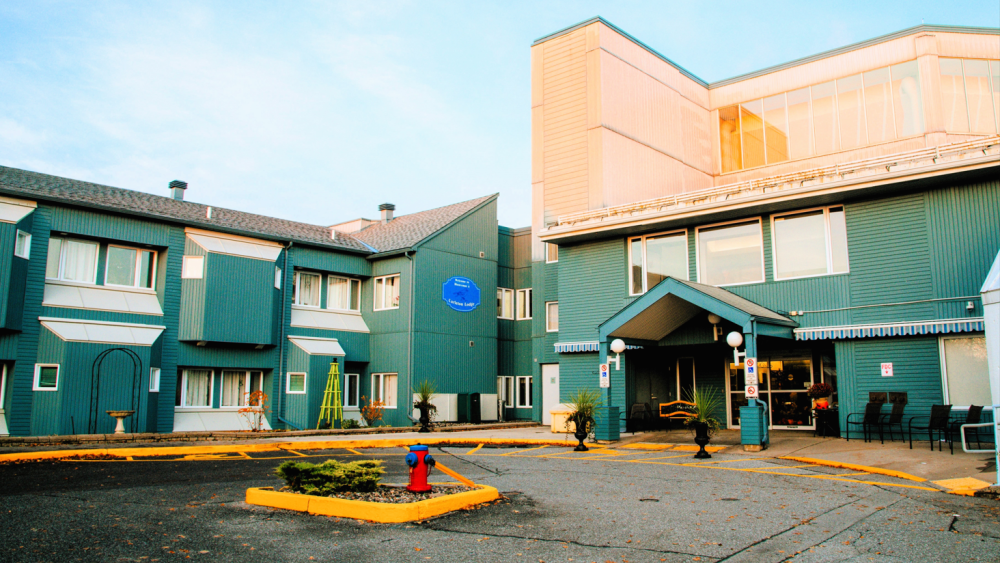Ottawa’s Madahoki Farm looking to create deep Indigenous cultural experience
Posted Oct 20, 2021 01:00:00 PM.
Social entrepreneur Trina Mather-Simard began her Indigenous tourism business 25 years ago, offering authentic experiences in the capital region.
In her latest venture, Madahoki Farm, Mather-Simard is turning a 164-acre piece of land on Hunt Club Road into a new tourism experience, one that builds on the growing interest in the farm-to-table culinary experiences of agritourism as well as a deeper dive into authentic cultural experiences of Indigenous people.
You can experience Madahoki firsthand October 23 and 24 at the Tagwagi Fall Festival, a free family event open to the public.
Madahoki Farm will be the new site of the many festivals Mather-Simard, who heads Indigenous Experiences, produces every year. There's a stage for pow-wows, an old farm house converted into a marketplace, a barn for rare Ojibwe Spirit Ponies, and cooks selling Indigenous food such as smoked trout, game meat, wild rice and bannock. There's also a crafts centre with a stone fireplace where Indigenous artisans make arts and crafts.
“We made sure our programs were developed and delivered by our own community,” Mather-Simard explains. “We come from many different nations and cultures. Everyone shares their own unique story. Indigenous people are incredibly diverse. The one thing we share is our connection to the land. Entire cultural beliefs are tied to the land, respect for animals, our waters and forests.”
Spreading cultural goodwill is one thing, but after 25 years working in not-for-profit cultural industry, Mather-Simard also has a keen eye on ensuring Madahoki Farm is a sustaining business. Currently, in addition to housing festivals such as the Summer Solstice, there are plans to add an apiary for honey, a fruit farm, medicinal herbal farm, pasture for bison and elk and farm land she will share with other Indigenous farmers.
Given the renewed commitment to reconciliation Canadians and the federal government are showing Indigenous communities lately, Mather-Simard thinks the sky is the limit for the farm.
“I'm always looking for new ways to share our culture,” she says. “I can be overly ambitious at times. I'm the one with the crazy ideas, like leasing a 164 acre farm. But there's opportunity to grow here.”
Madahoki Farm also marks a significant shift in the public appetite for authentic Indigenous culture.
What Mather-Simard has discovered, if not nurtured, is that Canadians want more than the curated museum display, festivals and government ceremonies. Canadians want to take a deeper dive into the culture and traditional lifestyle of their First Nations.
“Ottawa's a pretty progressive community for Indigenous culture,” Mather-Simard says. “The Museum of History offers an archaeological view of Indigenous culture, which is excellent. We're different. We're the authentic lived experience. We offer the opportunity to meet and interact with Indigenous people, hear their story directly, and have a real experience.”
Originally from Oshawa, Mather-Simard's career promoting Indigenous culture began in 1998 when she came to Ottawa for school at Algonquin College, but quickly found her real calling for event planning at the Odawa Native Friendship Centre. There, the ambitious 23-year-old started networking with Indigenous communities, and pitched the National Capital Commission (NCC) about putting together a pioneering exhibition on Victoria Island which would give visitors an “authentic Native experience.”
Surprisingly, the event was a bigger draw with tourists from Europe and Asia, who made up three quarters of the attending visitors, than Canadians.
The wheels were set in motion.
“We were the very first urban Indigenous experience and most of our visitors were international tourists from Germany and Japan,” she says. “The market for Indigenous culture has grown since then. Canadian families now make up one half of our visitors.”
A lot has changed since then. With a 25-year lease from the NCC, Mather-Simard and her company of cultural ambassadors are in for the long haul.
And though the irony of having to “sell” the culture of Canada's original peoples back to mainstream Canada is not lost on her, Mather-Simard is taking the long view.
“This is where we can make connections with Canadians and other Indigenous communities, and build a future. I wouldn't have done it if I didn't believe we could.”








